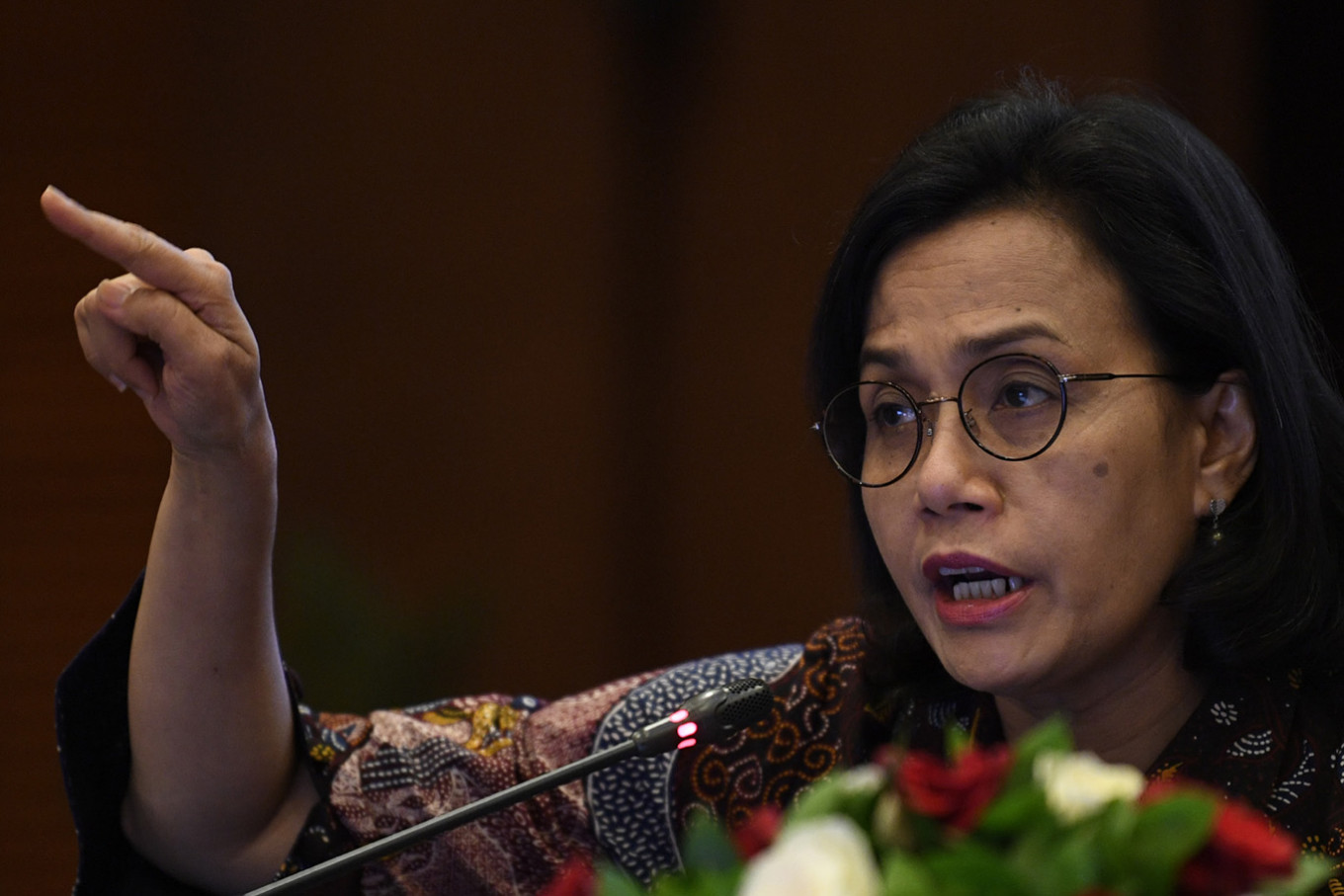Popular Reads
Top Results
Can't find what you're looking for?
View all search resultsPopular Reads
Top Results
Can't find what you're looking for?
View all search resultsGDP to contract by 3.1% in Q2 on COVID-19 headwinds
The economy grew 2.97 percent in the first quarter, the slowest pace in 19 years.
Change text size
Gift Premium Articles
to Anyone
T
he economy is projected to shrink 3.1 percent in the second quarter, the worst quarterly growth since the 1998 Asian financial crisis, due to the impact of social restrictions to contain the coronavirus, according to the finance minister.
Finance Minister Sri Mulyani Indrawati stated on Tuesday that the large-scale social restrictions (PSBB), implemented in the country’s regions, including the busy Jakarta and West Java cities, acted as headwinds.
“Economic contraction will occur in the second quarter as the PSBB will have a severe impact on economic growth. We expect the economy to drop to negative territory,” Sri Mulyani said in a livestreamed news conference.
While the government maintained the baseline economic growth projection of 2.3 percent for this year amid the pandemic, and 0.4 percent contraction under the worst-case scenario, Sri Mulyani stated that the country’s gross domestic product (GDP) will likely grow between zero percent to 1 percent at best.
“We are looking at economic developments and will try to mitigate the downside risks so that it will not get worse,” she said, adding that the government hoped for the recovery process to start in the third quarter.
The coronavirus outbreak has disrupted economic activity throughout the archipelago, as the enforced physical distancing measures to contain the spread of the coronavirus has forced offices, factories, shops and schools to shut down.
The economy grew 2.97 percent in the first quarter, the slowest pace in 19 years.
To cushion the economic blow, the government has unveiled a Rp 677.2 trillion (US$48.3 billion) economic stimulus package, which will widen the budget deficit to 6.34 percent.
Previously, the Organization for Economic Cooperation and Development (OECD) expected the economy to contract 3.9 percent this year, a more dramatic decline than initially expected, in a worst case scenario where it is hit by a second wave of COVID-19 infections.
Under a baseline scenario, the Paris-based think tank projects the economy will shrink 2.8 percent this year if the government manages to avoid a second wave of infections, while the country has recorded more than 39,000 cases.
On the other hand, the World Bank projects the economy to stagnate this year.
“While not a contraction, Indonesia’s growth rate will nevertheless be 5.1 percentage points lower than January forecasts,” the Washington, DC-based development bank stated in its latest Global Economic Prospect report.










